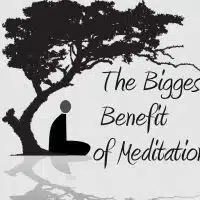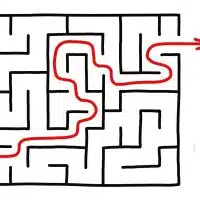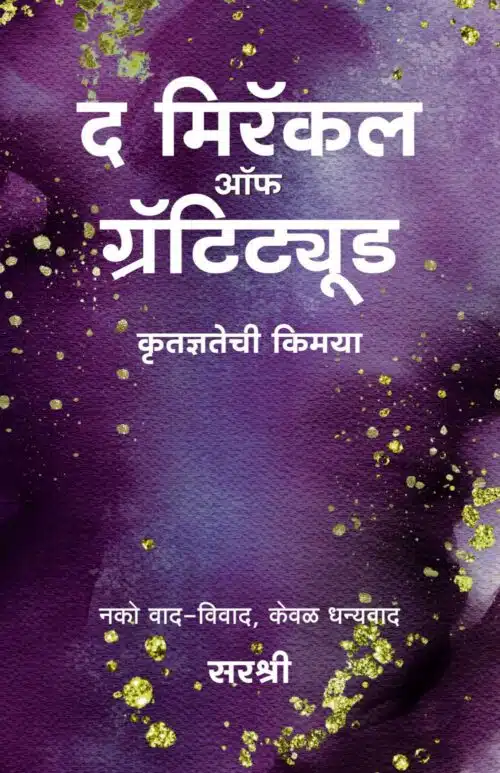
Is Spirituality Practical?
It is common for man today, to focus more on external achievements and material comfort, ignoring the inner calling for spiritual growth. The desire to be peaceful, to be in harmony with one and all, to live a life in the service of others, is often subdued. Pursuit of worldly desires seems more practical. Spirituality does not seem practical as there are no ‘tangible’ outcomes or benefits.
But what is truly “practical”? Here is a story that might change the very perception of ‘practical’.
There is a playwright who has written a grand play. It is of epic proportions. The play is such that the stage is set across many cities or towns. To see the play in its entirety, one has to visit many places. Each city becomes a different set, and the characters in each set are residents of that city.
Having written such a play, all the actors are gathered and are explained their roles. Also the characters have a choice of their role. Some choose challenging ones while others choose monotonous roles. However all roles are necessary for the play to be complete and form the whole picture. Another unique aspect of the play is that the play can span many decades over a period of time.
Everyone is excited about the super epic to be played out. The Play begins with great enthusiasm and verve. But as the play progresses, a strange thing begins to happen. The play is so convincing and real, that the characters themselves begin to forget that they are actually actors enacting the play according to the grand scheme of the playwright. They begin to get involved in the scenes to the extent that they actually begin to live it.
Now if the character had a sad role in the play, what would happen? If the character had a villainous role, what would happen? They become so serious, that they begin to believe the role to be themselves and identify with it. The misery, that earlier was only to be enacted, seems so real.
So now when Julie, an actor playing the role of a character called Julius, is asked a question about how to make life on the sets easier, she no more answers from the perspective of a girl who is working on the sets. She continues to assume the identity of Julius, the man she is playing, and answers from that perspective. She says, “All the nobles are out to kill me and life here is very dangerous.”
At that point, if an enlightened one (the one who knows that this is a play) was to tell her, “Ask yourself – ‘Who am I? What is your true identity?’ she may not act on the advice. This is the same problem with all the characters. When asked to contemplate on their true identity, when asked to enquire on the question, ‘Who am I?’ they do not connect to the advice. Some may think, “There is something in this, but let’s be practical, there are more important things to do. There are responsibilities I have to handle. Perhaps some other time…”. There will also be a few who may say, “I have attained so much in life (in the play) and am now in the position I am, because I am practical. Take my advice, all this contemplation and meditation are to be taken up only as hobbies. Practical life calls for doing real work.”
But for some, who have actually felt the disconnect with their True Identity, these suggestions may act as a fire that they will stoke by pursuing the quest to find out who they really are.
So, what is truly practical? More specifically, ‘What comes first?’ because both are important – the role being enacted, as well as, being aware of your true identity. It is quite possible that a person awakens in the play (realizing he is playing a role in the bigger play) and may switch roles or may align himself more to his role doing it with even greater vigor, but consciously. The sole motive will be that the story moves forward. He may be an ordinary chef, or a carpenter, or a leader in society. To add another dimension, when oneness is felt, the actor may realize that (s)he is the playwright as well as the actor. The same life-force is playing out all the roles.
To conclude, consider that spirituality could be the most practical thing you could ever pursue. Contemplating on your true nature and sparing time for it, could be the best investment you ever make.
– Adapted from a discourse by Sirshree in the follow-up sessions of the MA retreat


















2 comments
Agyat Meetra
Hi, this is a really well written article and it drives home the ‘truth’. The trust of why we all are here. Here, on earth. What is the purpose of our existence? What is our goal? Thanks.
Ram Wadbudhe
Woe ! How nicely explains *WHO AM I ? * It is that much simple !
Great…Great ..Great.. SIRSHREE !
Only Enlightened Mind-Body-Machine can elaborate like this & make it so simple for ……